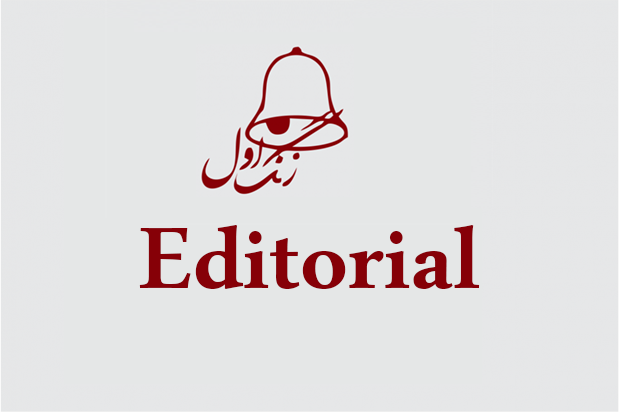On the front against the Taliban, we have seen many formal movements. Military fronts have been formed, movements and groups opposed to the Taliban have declared their existence, many statutes and declarations have been published, demonstrations and conferences have been held, and many discussions have been held condemning the current situation; However, there has not yet been a political change that indicates a qualitative change in the politicians’ approach to the country’s issues.
We have not heard a new definition of the current situation from prominent political figures and currents, which indicates a change in their own point of view. They try to find a way for their own “role creation” with tools, tactics and even repetitive faces.
The inability to see the big picture of the Afghan problem is a weakness of all political forces. Most of them follow personal and group agendas, prefer short-term benefits and are not motivated for long-term work. The sense of ownership towards the country and its politics is rarely seen among this group of politicians, and they, as contractors and third-party beneficiaries, see the role of external or heavenly hands so prominently that their main job is to measure the direction of intelligence winds, rely on luck and wait for golden opportunities to come. When a group, party or political organization is formed, it spends little energy on examining the state of its internal forces, its organizational and political capacities, ways of contacting the people, and mobilizing the masses.
Once upon a time during the Republic, the transformation in the market, the increase in the level of literacy and the emergence of a growing middle class made sociologists hopeful about the possibility of change in the country’s political arena, but the expansion of the scope of insecurity and terrorism hindered the penetration of development throughout the country, especially in the villages under the control of the Taliban. and as a result of the tradition of project thinking, sectarianism and corrupt parties were strengthened.
After the Taliban takeover of Afghanistan, there was hope again to learn from the past and marginalize failed personalities and currents, but we still have to wait and see if this hope is true. The reaction of women against the restrictions of the Taliban group, their limited but stable presence on the roads for the right to work, freedom and education has been one of the correct signs of this hope. 20 years of relative opportunity to learn and live in a non-Taliban environment has made the society stronger and more aware than when the Taliban first took over the administration of the country. The widespread support for girls’ right to education and the rise of slogans of schooling in villages and deprived areas that were considered the Taliban’s social base in the past is another sign of change. But the educated class, familiar with civic values and aware of the political and economic needs of our time, who could turn the majority of people’s desire for education, work and freedom into a political force, have been scattered in four corners of the world. In this way, the field has become smoother for the return of traditional players. Unfortunately, they are so infected with passivity, narrow-mindedness and stratification that they can neither get out of the swamp nor will people trust them.
Among this group of politicians, political questions are also passive, partisan and stratified. Among them, questions like this are rarely asked: How can the roots of fundamentalism and terrorism be destroyed in the society? What are the internal and fundamental factors of the crisis and how can they be targeted? What is the weak link in the chain of fundamentalism, bigotry, tyranny and terrorism and where do we start the fight against these phenomena? What role did non-Talib groups play in creating this situation and how can we learn from the past? How can alignment and unity be created in the resistance front?
Most of this group of political activists do not have any questions and do politics with fixed assumptions and stereotypes. If they raise a question, it is also passive and projective: how long will America support the Taliban? Will Pakistan put pressure on the Taliban in establishing a comprehensive government or not? How can the Taliban be encouraged or forced to form a government in which party leaders and prominent organizational and ethnic “personalities” reach important positions? Which foreign country should we show more interest in order not to be removed from the equations of the political future?
A new path begins with new questions. In order to get out of the shadow of the mistakes and illusions of the past, the new generation of the country’s politicians must raise new questions outside the party’s domain.










